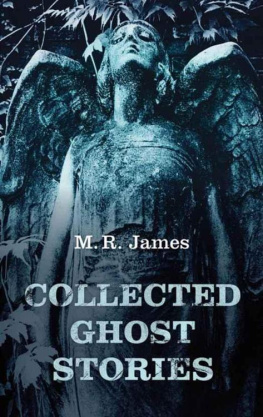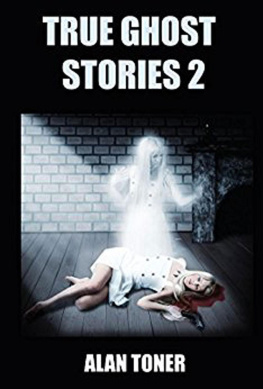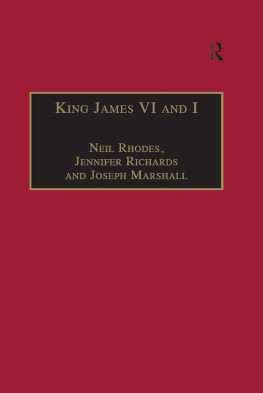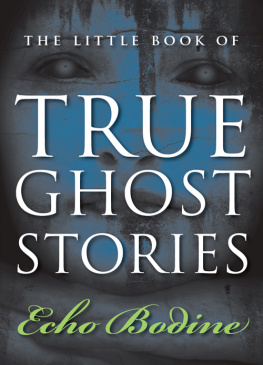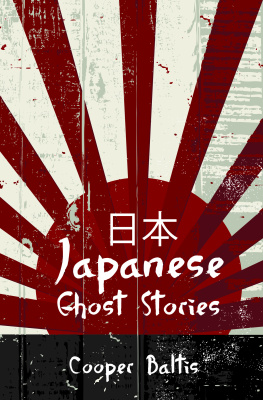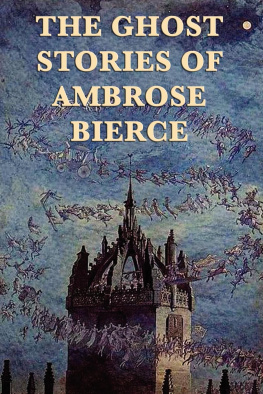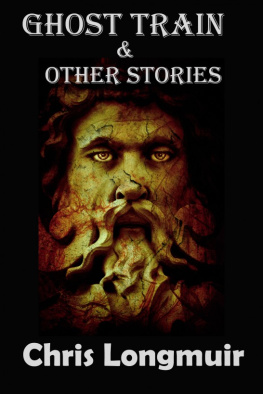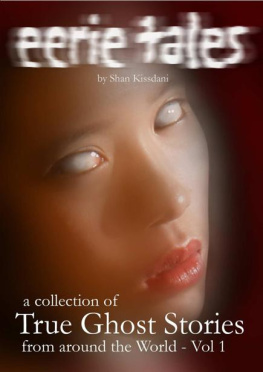COLLECTED GHOST STORIES
M. R. JAMES
COLLECTED GHOST STORIES

Edited with an Introduction and Notes by
DARRYL JONES


Great Clarendon Street, Oxford ox2 6 DP
Oxford University Press is a department of the University of Oxford. It furthers the Universitys objective of excellence in research, scholarship, and education by publishing worldwide in
Oxford New York
Athens Auckland Bangkok Bogot Buenos Aires Calcutta Cape Town Chennai Dar es Salaam Delhi Florence Hong Kong Istanbul Karachi Kuala Lumpur Madrid Melbourne Mexico City Mumbai Nairobi Paris So Paulo Singapore Taipei Tokyo Toronto Warsaw with associated companies in Berlin Ibadan
Oxford is a registered trade mark of Oxford University Press
in the UK and in certain other countries
Editorial material Darryl Jones 2011
The moral rights of the author have been asserted
Database right Oxford University Press (maker)
First published 2011
All rights reserved. No part of this publication may be reproduced, stored in a retrieval system, or transmitted, in any form or by any means, without the prior permission in writing of Oxford University Press, or as expressly permitted by law, or under terms agreed with the appropriate reprographics rights organization. Enquiries concerning reproduction outside the scope of the above should be sent to the Rights Department, Oxford University Press, at the address above
You must not circulate this book in any other binding or cover
and you must impose this same condition on any acquirer
British Library Cataloguing in Publication Data
Data available
Library of Congress Cataloging in Publication Data
Library of Congress Control Number: 2011934716
Typeset by RefineCatch Limited, Bungay, Suffolk
Printed in Great Britain
on acid-free paper by
Clays Ltd, St Ives plc
ISBN 9780199568840
ACKNOWLEDGEMENTS
T HIS edition could not have appeared without a lot of help. I am grateful first to Judith Luna at OUP for inviting me to undertake this project, and for her help, patience, and wisdom. The librarians of many great libraries have been invaluable, and I would particularly like to thank the archivists at the two institutions with which M. R. James was closely associated, Kings College Cambridge, and Eton College. My thanks also to Charles Benson, Keeper of Early Printed Books at Trinity College Dublin. I am not the first editor James has had, and I have benefited greatly from the work done by all of my predecessors, but particularly Michael Cox, whom I never got to meet, but whose work as an editor and biographer was exemplary.
Part of the research for this volume was enabled by an Arts and Social Sciences Benefactions Fund Award from the Faculty of Arts, Humanities and Social Sciences, Trinity College Dublin, for which I am very grateful.
For advice, information, and support along the way, I would like to thank Chris Baldick, Ailise Bulfin, Steve Cadman, John Connolly, Helen Conrad-OBriain, Nick Daly, Dara Downey, John Exshaw, Christopher Frayling, Kate Hebblethwaite, Paul Jackson, Maureen Jurkowski, Hilde Losnegrd, Elizabeth McCarthy, Philip McEvansoneya, Ebony Morey, Bernice Murphy, John Nash, Sorcha N Fhlainn, Helen OConnell, Eve Patten, John Scattergood, and Brenda Silver, and my students at Trinity College Dublin.
Particular thanks must go to my friend and colleague Jarlath Killeen for very many conversations on Victorian and Edwardian literature and culture, and on the supernatural, over very many years.
My deepest debt is to my wife, Margaret, and my daughter, Morgan, to whom this volume is dedicated.
CONTENTS
INTRODUCTION
Readers who are unfamiliar with the stories may prefer to treat the Introduction as an Afterword.
I T is Christmas Eve in Kings College Cambridge, in the first decade of the twentieth century. In the Chapelthe finest, most beautiful, and most complete work of late Gothic perpendicular architecture in Englandthe famous choir, made up of choral scholars from the College and schoolboy choristers from nearby Kings College School, have sung the carol service, opening with a beautiful rendition of Once in Royal Davids City (though the celebrated Festival of Nine Lessons and Carols for which the choir is today best known is not a tradition that will begin until 1918, when the College starts to heal itself after the devastation of the First World War, in which so many young Kingsmen lost their lives). The Fellows and Scholars then process to Hall, for dinner and tankards of hot spiced beer to ward off the cold and the dark.
To close the evening, a select few, a very fewfriends, colleagues, former studentsretire to the Provosts rooms, participants in an altogether more sinister Christmas ritual, but one intimately connected to the carols and the Chapel. This is a dark, Victorian Anglicanism, practised out there on the fens in the flat east of England, where the sky and the land seem part of one another, and where there is no horizon; far away from the concerns of the world. The Provost thinks of his own childhood, not too far from here, a world of isolated country houses in the Italian style, of Martello towers, shingle beaches, Anglo-Saxon burial mounds, witches
Candles are lit, the Provost disappears into his bedroom; the friends talk, and drink their brandies or port, a little nervously. Perhaps someone plays a few bars on the piano, but always hesitantly, and never for long. At last, the Provost returns, clutching a manuscript covered in a spidery, illegible handwriting that might almost be a private cipher, the ink still wet upon the final pages, and blows out all the candles but one. It is gone eleven, nearer midnight, when the Provost begins to read, his clear, confident voice cutting through the dim, flickering light of candle and fire: By what means the papers out of which I have made a connected story came into my hands is the last point which the reader will learn from these pages
By the time his ghost story readings became a Christmas ritual, Montague Rhodes JamesOld Etonian and Kingsman, dean and provost of Kings College Cambridge, future vice-chancellor of Cambridge University and, in semi-retirement, provost of Etonwas amongst the most distinguished scholars in the world. His prodigious body of work, on manuscript catalogues, on biblical apocrypha and the writings of the Church Fathers, on ecclesiastical architecture, and on whatever else happened to capture his imagination, would continue unabated until his death, aged 73, in 1936. Very occasionally, to entertain himself and his friends, he also wrote ghost stories. Even more occasionally, these were collected together and published in slim volumes. While his catalogues, in particular, remain indispensable to any serious scholar of medieval manuscripts, and are very unlikely to be superseded, it may have come as a surprise to Monty James that it was to be for his ghost stories that he would be best remembered and most revered. The Collected Ghost Stories, published under his supervision in 1931, has never been out of printalthough it is not complete, as there were more stories to come in the last years of his life.
M. R. James was born in Goodnestone, Kent, on 1 August 1862, the youngest child of Herbert James, an Anglican clergyman of Evangelical leanings, and his wife, Mary Emily. Young Monty grew up surrounded by an atmosphere of religion and the supernatural, subjects which captivated him throughout his life. He was particularly drawn as a child to dread visions, be they of the gruesome martyrdoms of saints, or of the end of the world itself. Preaching a sermon in Eton in 1933, he recalled:
Next page
